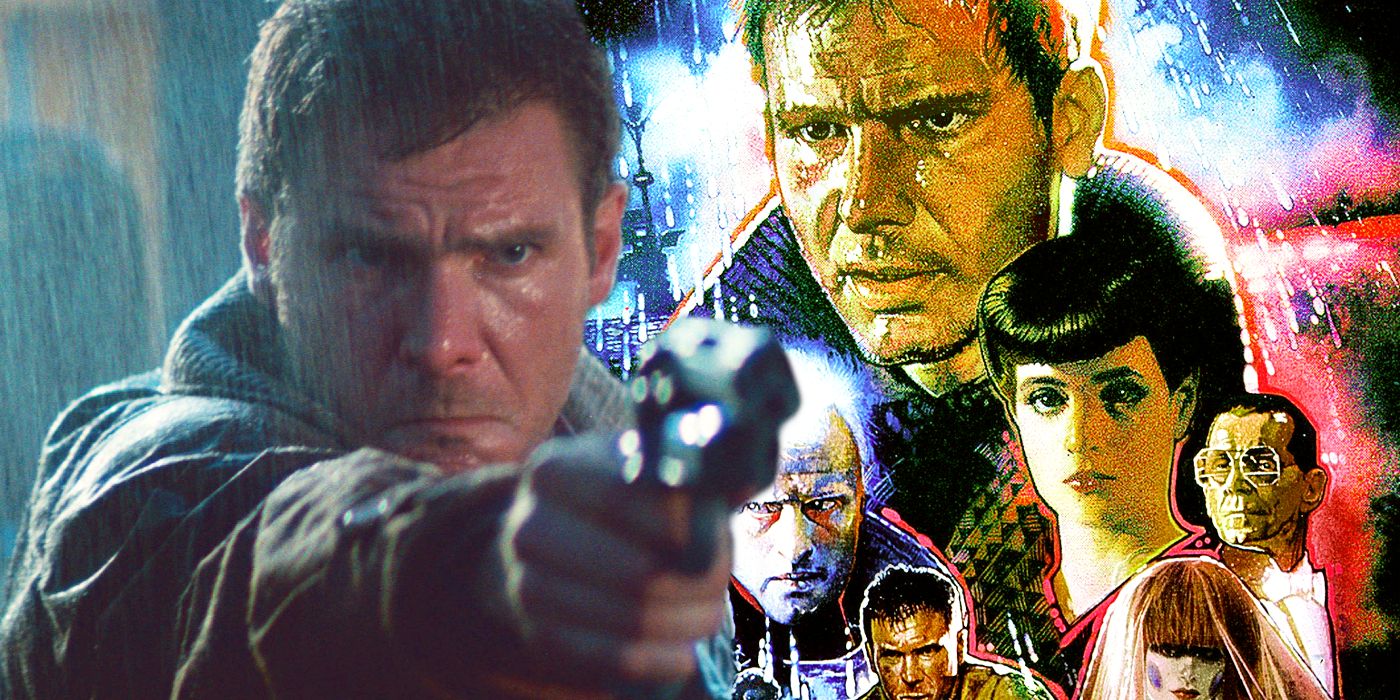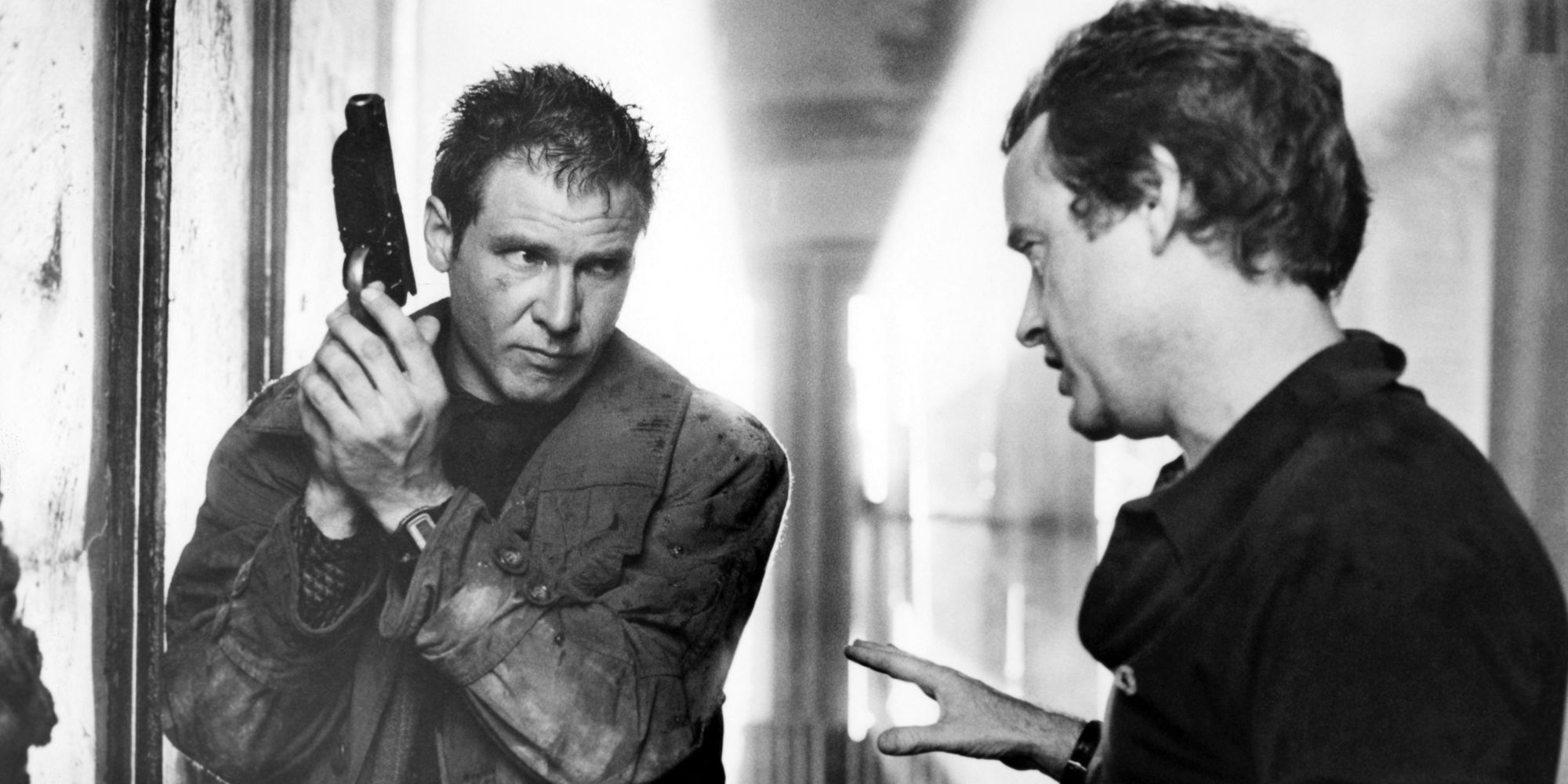Although Harrison Ford originally didn’t have a very positive mindset about Blade Runner, there's a clear reason why his opinion about the film changed later on. While Blade Runner is known today as one of the best examples of sci-fi visuals, themes, and philosophy, the film polarized critics and audiences alike when it was released in 1982. Ridley Scott’s misunderstood Blade Runner has developed a wider cultural and influential appreciation over the years, and Harrison Ford has taken a similarly positive path in his perception of the film.
Following his success in action and sci-fi movies like Indiana Jones and Star Wars, Harrison Ford was recruited to star in the futuristic sci-fi epic Blade Runner. Harrison played the main role of Rick Deckard, a former police officer whose job as a “blade runner” is to find bioengineered humanoids called “replicants” and fatally “retire” them. The dramatic depth of Deckard was a new turn for Ford after his more action-heavy roles, and his neo-noir performance in Blade Runner has since been praised as one of the best of his career. Although Blade Runner quickly gathered a cult following that celebrated Ford, the actor spent many years with a distaste for the film due to the original theatrical cut and his experiences on set.
In 1992, Harrison Ford said that “Blade Runner is not one of [his] favorite films,” in part because he had frequent disputes with acclaimed sci-fi director Ridley Scott on set. The actor also had issues with the actual production of the film, particularly with Deckard’s voiceovers. Ford loathed having to do the voiceovers, partially because he felt the movie worked perfectly fine without them. In one interview, Ford said that whenever he thinks back on Blade Runner, he doesn’t think of the 50 grueling nights shooting in the rain, but the voiceovers. He elaborated (via Vice) by saying he was “obliged to work for these clowns that came in writing one bad voiceover after another.” While Harrison Ford isn’t one to romanticize his films and roles, the actor had a particularly negative memory and experience about the 2019-set Blade Runner for over 20 years after its release. But, after reflecting more on the impact of the film and its influence on up-and-coming directors, writers, and film professionals, Ford has finally come around to a positive image of his role in the movie.
One of the best side effects of Harrison Ford’s changed view on Blade Runner is that he returned to the material in 2017 for Blade Runner 2049. While promoting Denis Villeneuve’s Blade Runner sequel, Ford told The Globe and Mail that he believed Blade Runner 2049 would connect better with audiences immediately, rather than a gradual appreciation like the original movie. Ford explained that Blade Runner was “ahead of its time,” and believed that the original not being accepted in 1982 wasn’t a problem considering the enormous following it gained and its “impact on generations of filmmakers and visual storytellers.” It seems that returning to the Blade Runner 2049 world after 35 years dramatically changed his perspective on the movie, as he appreciates his role in the cinematic masterpiece by virtue of how profoundly it has impacted so many filmmakers today. Ford has now praised the effect that Blade Runner has had on the wider culture, and even mentioned that it’s had a huge influence on his own life.
Ford and Scott also ended up getting over their arguments on Blade Runner, as the director eventually shared the actor’s thoughts on the voiceover narration and removed it from Blade Runner: The Final Cut in 2007, a version Ford himself is happy with. Ford’s notable issues with the first version of Blade Runner's movie were also worked into the 2021 Oscars show, where he read “editorial notes” that said the movie gets “worse every screening.” The joke was about how important and crucial the editor’s job is, while also pointing out how his appreciation of the creative process and impact of Blade Runner has grown over the years.


